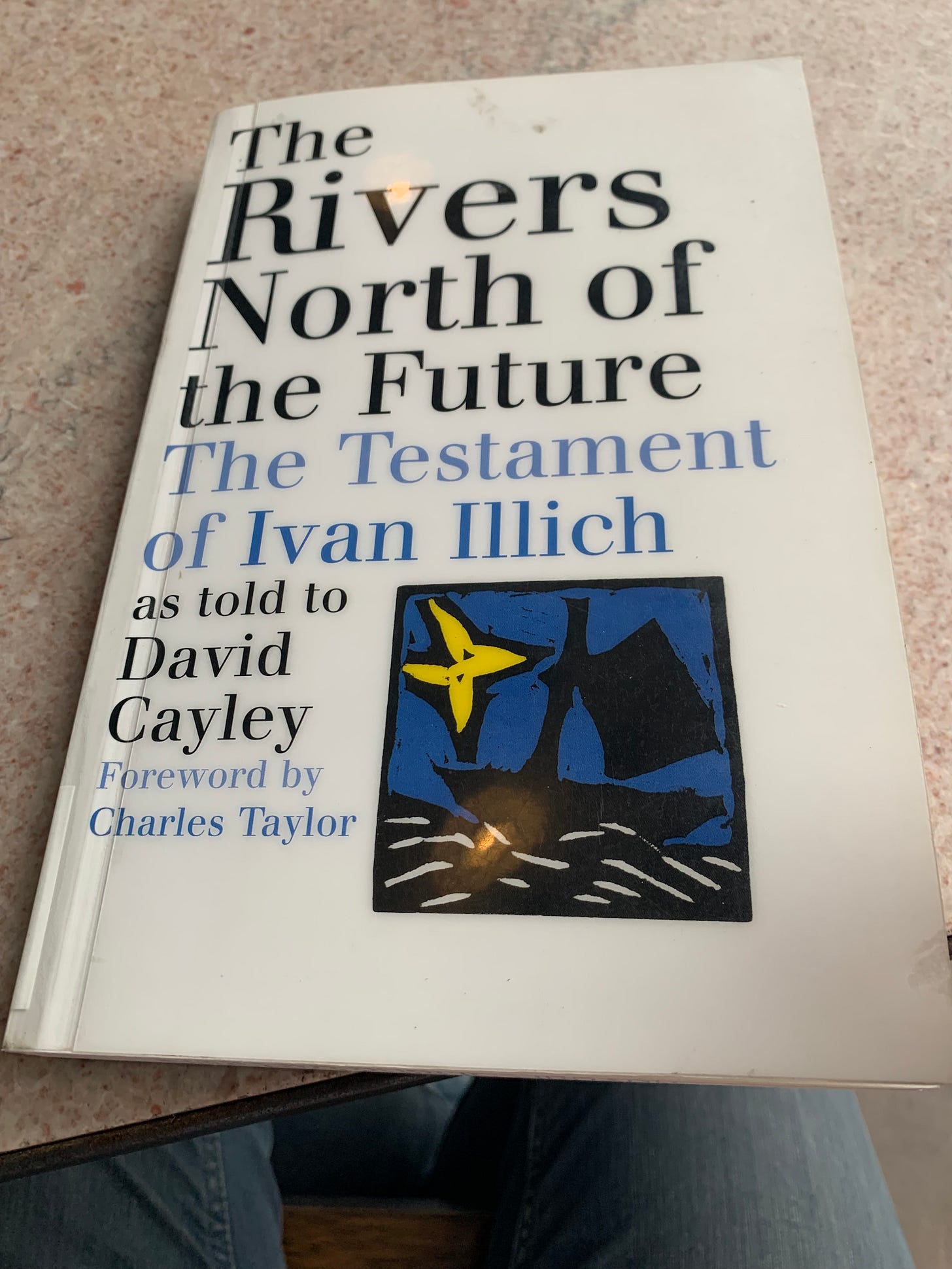ChatGPT Is Just Cheating Yourself, and Three Other Related Thoughts
Today, Christianity Today ran my latest piece, on the use of ChatGPT among my undergraduate students. It began here as a brief set of reflections, comments that I gave as part of a conference panel on how an ethicist approaches the problem. The hope here isn’t to shame anyone who has used it or currently uses it, but just to point out the very plain problem: using it only cheats ourselves.
Three Additional Notes on ChatGPT:
The Indifference of Answers. What ChatGPT excells at (when it doesn’t hallucinate) is providing an answer to a missing data point. It can aggregate information, provide streamlined approaches to tasks, and generate code to move from A to B. But what it cannot do is discover things. Because it operates on the basis of received opinion and available information, it can aggregate answers, but doesn’t care—literally or figuratively—about the answer it provides. There are baked-in limits to the kinds of questions that it will help you find answers to, but beyond a few very minor guardrails, it’s not going to help you establish whether a particular answer is good, much less good for you.
The Death of Discovery. Because ChatGPT works on the basis of prediction, it’s going to give—either in vague generality or mind-crushing detail—what is out there. If it doesn’t know, it’ll make it up. But the end result is the same: it obscures the need to discover things that fall outside of data crunching. This morning, I spent an hour perusing stacks in the library, because I have a nagging question that I don’t have an answer for, and it’s an answer that will contribute to my next big book project (more below).
**
In the process of wandering the stacks, reading the footnotes, and reading the books those notes led to, I began to uncover a forgotten story about the book of Genesis that seems very heterodox. But this is just what happens when you’re trying to discover something instead of compile things. There’s a reason why Chat will give you ideas for a new and better Iphone, but not help you to reason out why we need smart phones to begin with, or why they’re so interconnected to us now.
The Predictibility of Responses. One of the common complaints about ChatGPT is that it sounds too wooden….which has in no small part to do with how it functions. It works by prediction, sussing out what answers should follow best from the prompt, and then refining from there. Because it’s not thinking—metaphorically or literally—the lanes it travels aren’t going to be super surprising, just faster. That ChatGPT would begin to mimic our writing more accurately over time just says that our writing and thinking has become more robotic, more predictable, not that Chat is somehow approaching human-level thinking.
A Brief Writing Update
School is back in session for myself and my kids, so it’s my hope to get back to writing at least 1-2 times a week. For the next month, I’ll be finishing out the manuscript for a project which began here a long time back: an introduction to the Christian moral life, with Psalm 23 as our guide.
But alongside that, I’ll be laying the foundations for my next Big Project. I’ll tell the full story at some point, but long story made short, I’ll be working with Keely Boeving at WordServe Literary Group to hone the proposal, and land it with a good home. There is a home in mind already, but getting it there will still take some work.
In a nutshell, the book will be about scarcity, and our disordered relationship to it. Part of it was the subject of my library exploration this morning, where I was chasing down early church interpretations of Genesis 3:17, and the implications of nature giving in excess, but not always what we want. It’s a project I’ve been mulling over for a few years now, and I’m trying now to carve out the space and secure the resources to make this one hum.
Next Book Club!
The next book club is going to be really great, and over what I think is a really pivotal book for understanding the sweep of the modern world. Philosophically, there are lots of Big Explanations for why the West is the way it is. But Ivan Illich’s The Rivers North of the Future is one of the unsung heroes here.
If you’ve read this for long, you know Illich rules, even if you hate him. So, become a supporting subscriber, and let’s read this together. Dates TBD.




"you know Illich rules" -- Guy who frames argument against Chat in virtuous uses of a tool